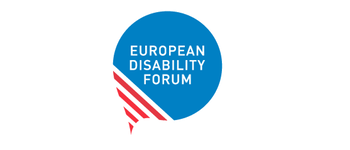COP 29: disability inclusion trailing behind

A delegation from the European Disability Forum (EDF) attended the climate conference (COP29) in Baku, Azerbaijan, from 11 to 22 November 2024, to point out that the United Nations and climate negotiators are not taking the needs of persons with disabilities and their families into proper and sufficient consideration.
First and foremost, the delegation asked to be formally represented by establishing a disability constituency during the negotiations, as it has been done for other groups of interest. The absence of this constituency undermines the ability of the global disability movement to be heard and to participate effectively in the negotiations.
The need to participate even formally in negotiations is made all the more urgent by the fact that persons with disabilities are disproportionately affected by the consequences of climate change, and by the risk of being excluded from the policies and solutions adopted to tackle the climate crisis itself, if these do not tend to meet the need of persons with disabilities.
The EDF delegation, led by EDF Executive Committee Member Nadia Hadad, spoke out on other pressing issues:
- Guaranteeing the accessibility to all climate-related initiatives, from infrastructure and transport to entrepreneurship, livelihoods and employment in climate-related sectors.
- Addressing the problems of persons with disabilities, meaningfully including them, through their organisations, when developing instruments such as the Nationally Determined Contributions and the Loss and Damage Fund.
- Ensuring inclusive climate policies, highlighting barriers and providing solutions that are in line with States’ obligations under the UN Convention on the Rights of Persons with Disabilities (UNCRPD).
- Paying particular attention to the needs of women, young people, persons with disabilities from under-represented groups (e.g. persons with intellectual, psychosocial disabilities or high support needs) and persons with disabilities who are members of other minorities such as indigenous peoples and the LGBTQ+ community.
The delegation also participated in side-events such as “No climate justice without civic space and meaningful participation” with Human Rights Watch, Amnesty International and human rights defenders.
“It’s unbelievable that, after so many years, we still have to fight to be heard and for our issues to be taken into account. The UN and the States Parties need to obey the Treaties they ratified and finally establish a disability constituency within the UNFCCC (United Nations Framework Convention on Climate Change)” said Nadia Hadad.

